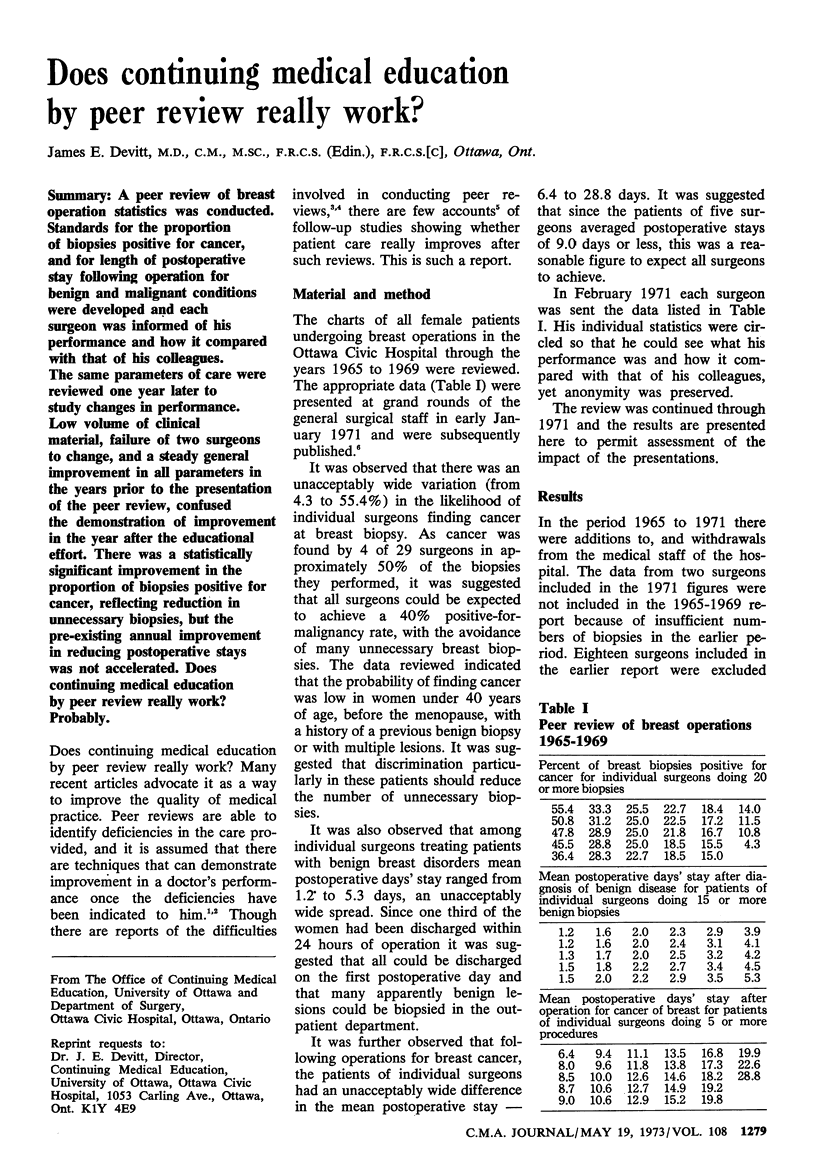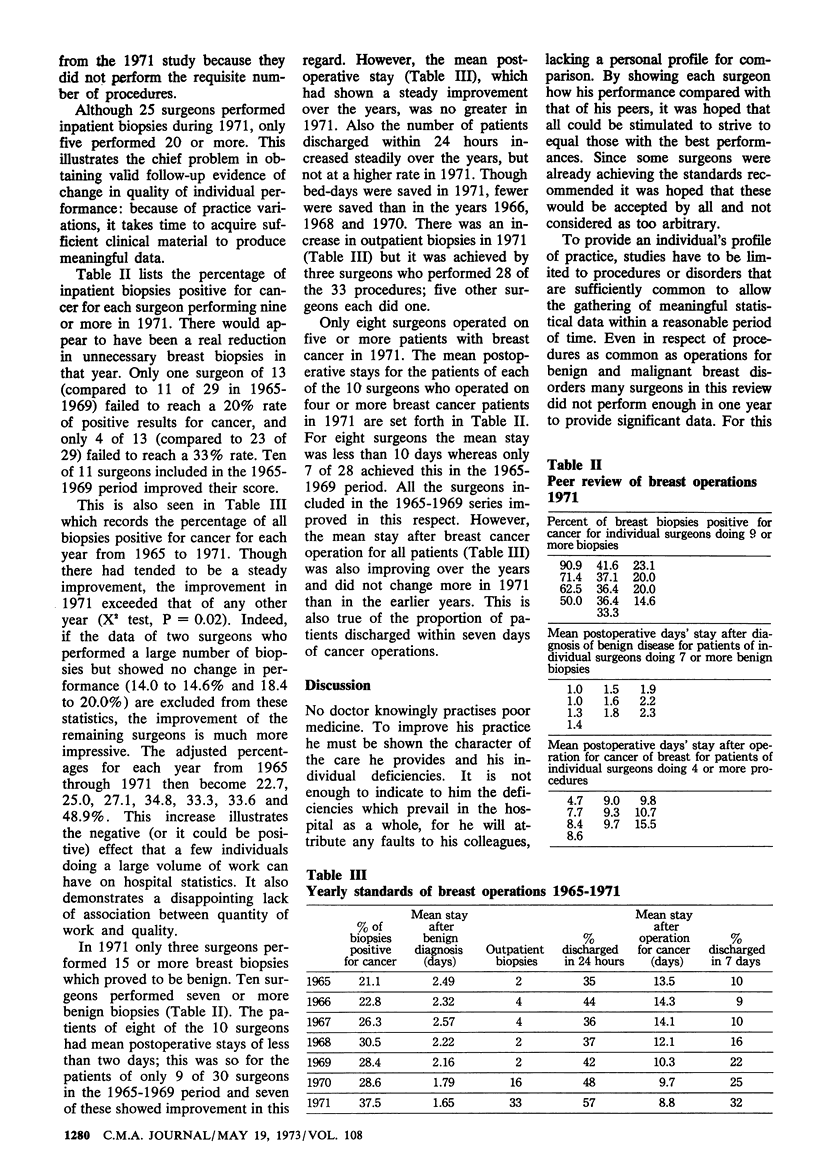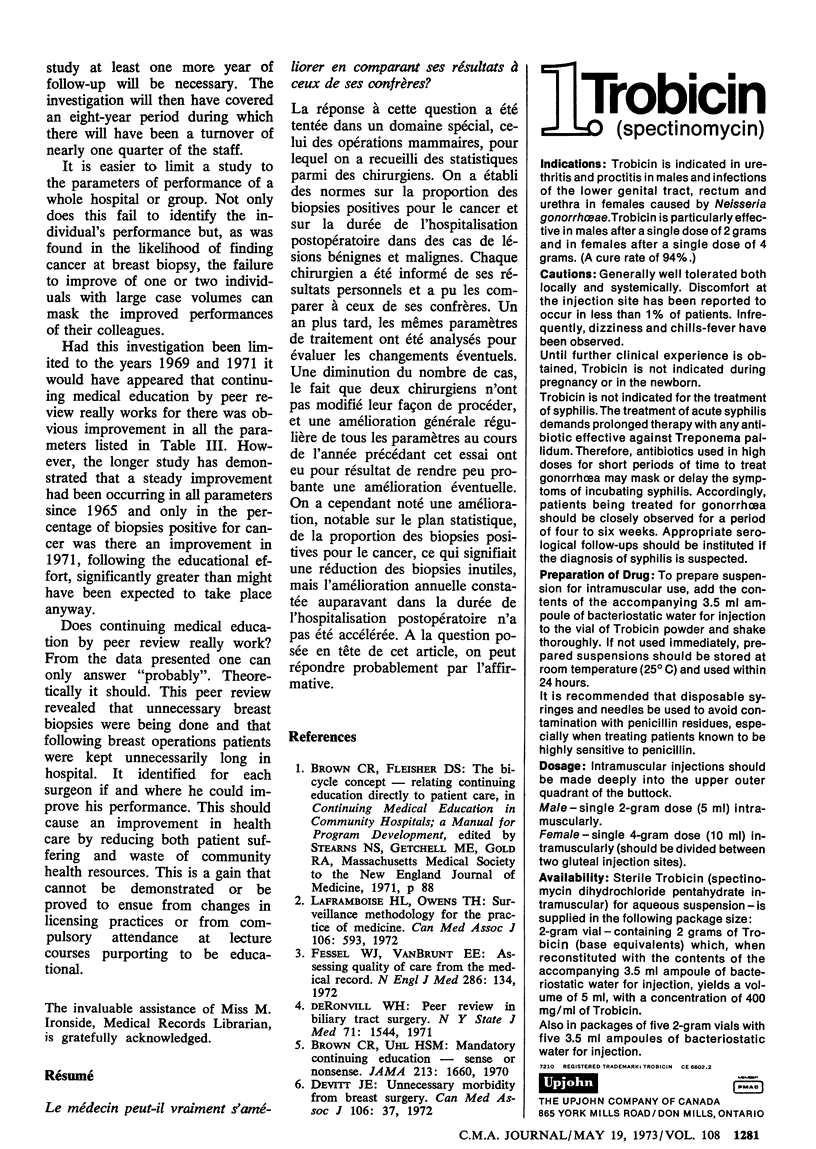Abstract
A peer review of breast operation statistics was conducted. Standards for the proportion of biopsies positive for cancer, and for length of postoperative stay following operation for benign and malignant conditions were developed and each surgeon was informed of his performance and how it compared with that of his colleagues. The same parameters of care were reviewed one year later to study changes in performance. Low volume of clinical material, failure of two surgeons to change, and a steady general improvement in all parameters in the years prior to the presentation of the peer review, confused the demonstration of improvement in the year after the educational effort. There was a statistically significant improvement in the proportion of biopsies positive for cancer, reflecting reduction in unnecessary biopsies, but the pre-existing annual improvement in reducing postoperative stays was not accelerated. Does continuing medical education by peer review really work? Probably.
Full text
PDF


Selected References
These references are in PubMed. This may not be the complete list of references from this article.
- Brown C. R., Jr, Uhl H. S. Mandatory continuing education. Sense or nonsense? JAMA. 1970 Sep 7;213(10):1660–1668. [PubMed] [Google Scholar]
- DeRouville W. H. Peer review in biliary tract surgery. N Y State J Med. 1971 Jun 15;71(12):1544–1548. [PubMed] [Google Scholar]
- Fessel W. J., Van Brunt E. E. Assessing quality of care from the medical record. N Engl J Med. 1972 Jan 20;286(3):134–138. doi: 10.1056/NEJM197201202860305. [DOI] [PubMed] [Google Scholar]
- Laframboise H. L., Owen T. H. Surveillance methodology for the practice of medicine. Can Med Assoc J. 1972 Mar 4;106(5):593–598. [PMC free article] [PubMed] [Google Scholar]


